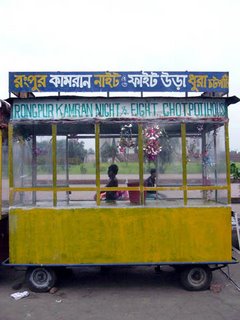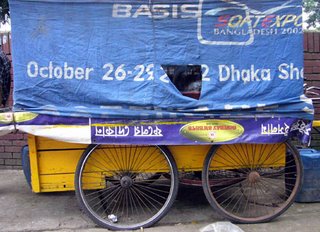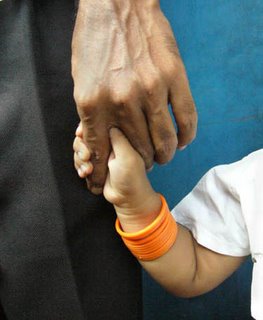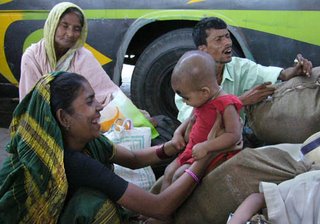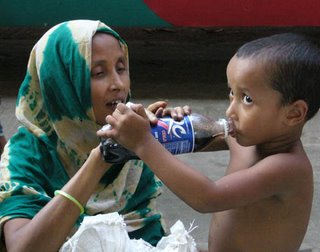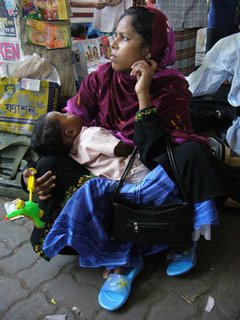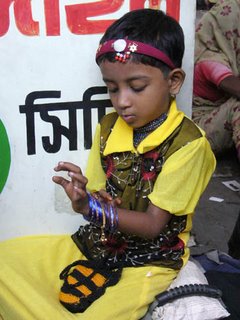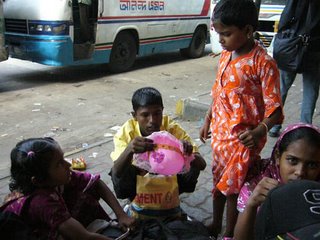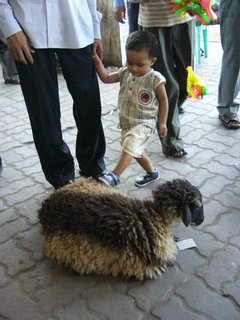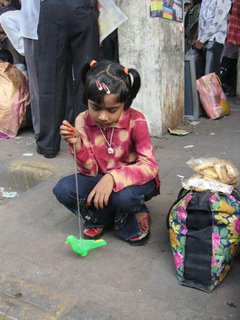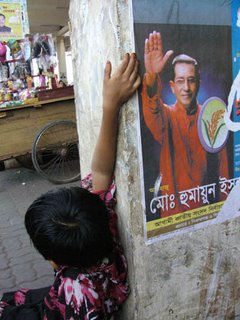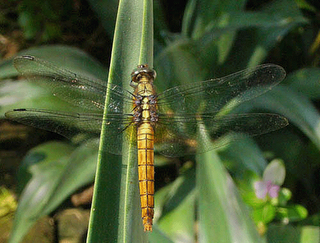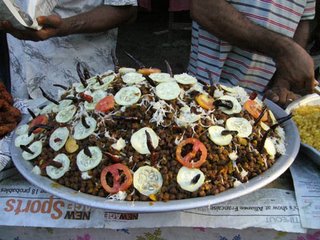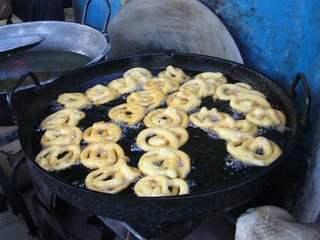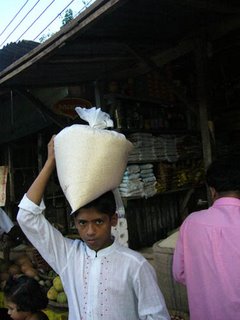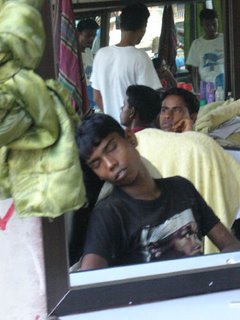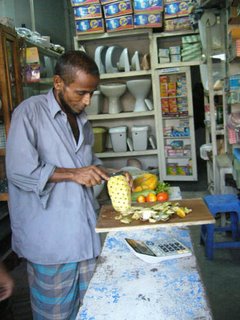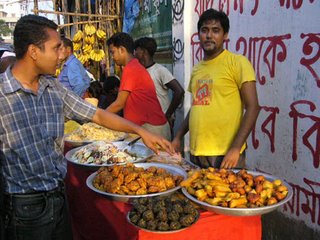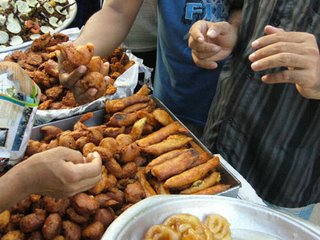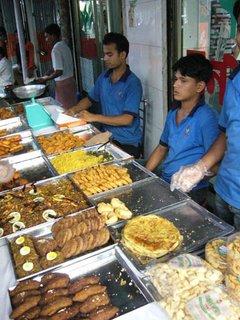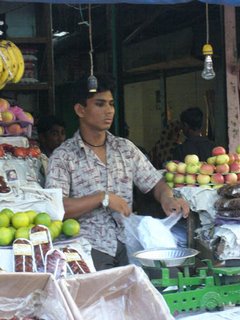When I entered Cornell as a freshman in 1977, one of my roommates was Mike S., grandson of a Nobel laureate and a brilliant fellow. Mike breezed through his homework-sets and had time left over to help me with two things killing me: helping debug my first programming assignments (in PL/C, on punch-cards, for an IBM 360), and typing my handwritten papers. This was a great relief to me.
For my part I lectured Mike on things and in general showed him the folly of his American ways. Thus it was that America and I started adjusting to each other.
I had already spent two years in London and so was not in total culture-shock. Nevertheless, my old Bangladeshi habits died hard. One of these was "do not waste."
So I got on Mike's case every time he left the room with lights on. He was polite enough to agree in principle, but I could not make him change his habit in practice. He would forget and then make some wishy-washy excuse.
Finally one day he confronted me: "But Ihtisham, if I turn off the lights how can it
possibly help your power situation in Bangladesh?"
This was a moment of profound shock and revelation for me. Not only had this smart, kind individual not understood why we needed to reduce waste, further, he had somehow confused my innate desire to reduce waste in every way - for the good of the planet and its future generations - with a desire for diverting the saved energy to Bangladesh!
It was only much later I learned that at many American dinner tables, when children refused to finish their food, their parents reprimanded them by invoking "all those starving children in India." Perhaps that's where Mike's extrapolations originated.
When I explained the real reasons to him, Mike was only half-convinced. Even after the shock of the Oil Embargo, America had access to virtually unlimited energy and other resources. So why bother turning out the lights?
Variations of this scenario played out repeatedly during my earlier days in the US. Why are you throwing away that perfectly fine shirt? Those shoes you threw away are intact - so what they are not fashionable? Is it really necessary to upgrade the car every other year? The amount of food that I saw wasted at Cornell Dining (an all you can eat joint) staggered me.
What was it about my background that had made me so sensitive to waste? Mainly because Bangladesh has so many people squeezed into such a small, resource-poor area, that every useful thing has to be used to the max. You were not Bangladeshi if this you were not embedded with this value.
Ok, ok, so Bangladeshis sometime take "do not waste" to an extreme. While every conceivable item gets recycled, the purpose is not always noble. Eg, Jinjira, a place near Dhaka, acquired its notoriety through making counterfeits some of which utilized recycled packaging of the original products. (In recent years, of course, counterfeiters in China and Thailand have left Jinjira in the dust, and thank goodness for that.)
In an ironic twist, I was simultaneously being seduced by America's affluence. For example, I recall being overjoyed that Cornell Dining's supply of chocolate milk never ran out. I could drink as much as I wanted! Having arrived in America with two suitcases (one with books and records; the other with clothes) pretty soon I needed a dozen boxes for my possessions.
Today, I find that back in Bangladesh, I am less likely to turn out the lights when I leave the room, and once in a while I do not clean out my plate completely.
As for children who grew up in American abundance, they must feel like my roommate Mike when they see "do not waste" in action in Bangladesh. However I am proud to say that our initially reluctant children have become conscientious about turning out lights and cleaning their plates.
Bangladesh appears to have changed too, specially in the upper and upper-middle classes, where affluence has brought plenty of consumption accompanied by the inevitable waste.
For example, in all-you-can-eat buffets in Dhaka restaurants you will see many unfinished plates of food.
Even in villages, where a torn sandal used to be repaired and re-repaired until it was in shreds, today a villager is more likely to replace it promptly if it rips.
Over the same years the US has also changed. Waste has not gone away completely, of course, but every locality has a recycling program. Things have come a long way since the 70s.
But the US still remains the biggest "consumer/waster" on the planet. A recent article in
The Independent newspaper stated that if all people consumed resources at the American rate, we humans would need five planet Earths to support our lifestyles.
I wonder how many Earths would be needed if all humans consumed/wasted at the Bangladeshi rate? 0.5? 0.25? 0.1?
